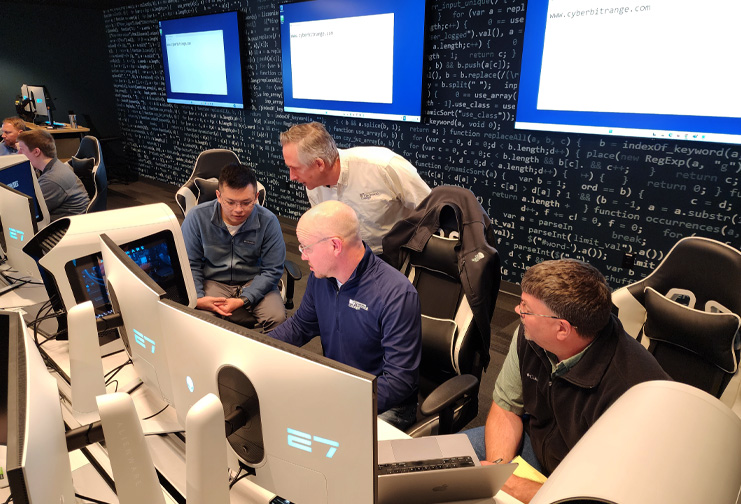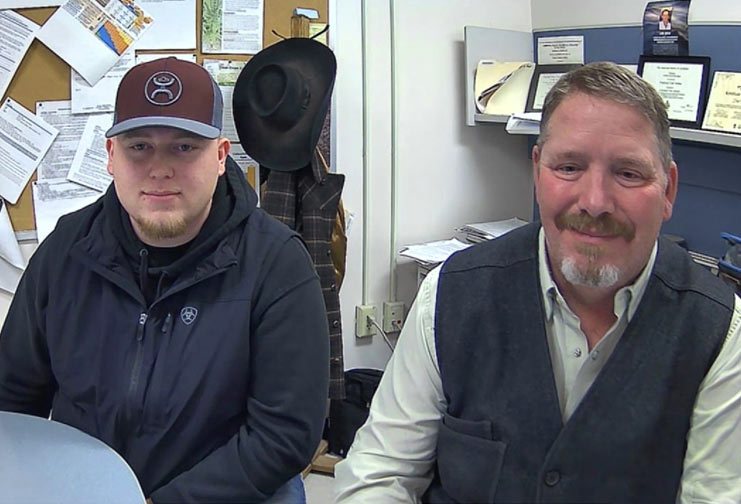Monday, February 14, 2022
Civil rights pilgrimage reveals true history for CVTC students, staff

Ten students and staff at CVTC went on a Civil Rights Pilgrimage to learn more about history.
Jennifer Moua, Kia Lee and more than 80 others were captured – taken by force, away from their babies and other loved ones. Orders were yelled at them amidst the chaos. Several people around them cried.
It was only a re-enactment, but it felt real just the same.
Weeks later, when recounting the experience, Moua and Lee said the Trans-Atlantic Slave Trade re-enactment was the most powerful part of the Civil Rights Pilgrimage they took to 10 cities in the southern United States in early January.
Chippewa Valley Technical College students and staff were welcomed on UW-Eau Claire’s pilgrimage, created by Jodi Thesing-Ritter, the university’s executive director for diversity and inclusion.
“We knew this would be a life-changing and impactful trip,” said Lee, CVTC student success specialist in diversity resources. “It was a great opportunity to have our students participate on this trip.”
Lee and Moua, CVTC grant director for TRIO student support services, said they opened applications to CVTC students and accepted eight for a total of 10 people from CVTC.
“I’m always thinking about how I can create opportunities for growth for my students, not just here but outside of the college walls,” Moua said. “How can I help broaden their cultural awareness and personal and professional growth?
“I believe knowledge is power. Seeing true history in this form, I knew students could gain so much from it.”
Two coach buses took the group, made up of students and staff from CVTC, UW-Eau Claire, UW-La Crosse, and local school districts, on the 10-day pilgrimage through Georgia, Alabama, Mississippi, Louisiana, Arkansas and Tennessee from January 7 through 17.
Moua said the slavery enactment was probably the most emotional for everyone on the trip.
“There were a lot of tears,” she said. “One of our students never knew this was how Africans were enslaved and brought over.”
Chousie Yang, 18, is studying business management at CVTC and was happy for the opportunity to learn more about civil rights history.
“Even being able to experience not even a fraction of the slave re-enactment was eye-opening,” said Yang, of Eau Claire. “There definitely were times during the re-enactment that felt super real, and that really changes your perspective on what happened and how it must have felt to be taken from your home and forcefully enslaved.”
Yang said she realized that as a society, we have not “changed the problem, we’ve only evolved it.”
Kristin Kelly, 45, of Eau Claire, said she was interested in the pilgrimage because she wanted to see the essential places that shared the Civil Rights Movement.
“I wanted to learn in what ways I can be an active participant in educating others of events that have happened and what important steps can be made where I live,” she said. “The most impactful portion of the trip for me was listening to the live speakers that were present at the events like Bloody Tuesday, Freedom Riders and Bessie in the Selma protests.”
Kelly, who has also lived in smaller communities like Chippewa Falls and Rice Lake, agreed that the re-enactment left a lasting impression and brought their emotional turmoil to life for those on the pilgrimage.
“I hadn’t realized that people lived on plantations as late as the 1970s,” she said. “I was also surprised that some states and counties in those states had still banned Black and White marriage until the late 1990s.”
Kelly explained that laws in the United States state every person is equal, but other individuals’ personal beliefs may sway people who have positions in public service.
“This makes the importance of checks and balances and accountability necessary within public service departments,” she said.
Realizations like Kelly’s are the self-growth organizers appreciate within the participants.
Lee said when the trip first began, the CVTC students stuck together, but as the days passed, the group branched out and had conversations with students from other schools. During the final days, all participants were asked how they would move forward.
“One of the biggest things I saw was the fact that they felt like they could make a change,” Lee said. “On this trip, we learned that children were making changes – that’s what really helped the Civil Rights Movement move forward. That’s what I hope our students gained from it. They are more powerful than they realize. I hope that message follows them.”


